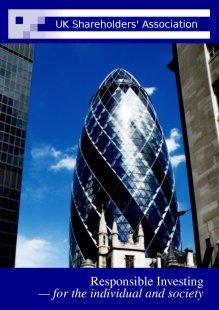Investors are being robbed as a result of the current IFRS accounting scheme which is not fit for purpose. Prior to IFRS published accounts were prudent and reflected what had actually happened. Now they may be based on economic theory.
In the prudent days, unlisted companies were valued:
If the company was making a profit - take the average Price/Earnings (P/E) ratio of the company’s nearest competitors and discount this by 20%.
If the company was making a loss, it was valued at cost, or lower if there was reason to do so.
Now under IFRS unlisted companies are valued on potential using the concept of ‘fair value’. This is defined as the amount for which an asset could be exchanged between knowledgeable, willing parties in an arm’s length transaction. Fair value assumes favourable conditions as it is not what an entity would receive or pay in a forced transaction, involuntary liquidation or distressed sale.
Fair value valuations based on potential are nowhere near reality as Neil Woodford found out when he had to sell his unlisted securities to raise cash for investors who wanted out. Companies such as Proton Partners International, Benevolent AI and Atom Bank were all making losses, but had ‘potential’ valuations based on conditions before the Woodford fund ran into difficulties. But the reality was that there were no buyers at anywhere near to listed prices when Woodford Patient Trust plc had to be wound up. But as well as suffering capital losses, investors were hit by Woodford continuing to charge fees.
The trouble is that the investment industry never learns. In 2018, Chrysalis Investments, part of Jupiter Asset Management, was set up to allow investors access to the world’s most innovative and disruptive companies, focusing primarily on unlisted companies. These were speculative investments as many were relatively young and still making losses, which is normal for companies with new technology.
The problem is that for investments of this kind the net asset value (NAV) per share will be far greater than they would have been when we had prudent accounting. Indeed buying into Chrysalis Investments is highly speculative as the price compared to the NAV has varied between +25% and -25%.
As at September 30 2021 the companies shares were trading at 267p, a six percent premium on NAV. But the NAV had been much lower and based on a superb performance the stock pickers were entitled to a bonus of £112.1 million. 'However, the company had realised two investments and on this basis the bonus should have been a maximum of £13 million, still a stellar sum'.
They agreed to take the deferred part of the bonus in new Chrysalis shares at 267p each.
In the days of the old accounting system, incentives were based on actual performance, not one based on economic theory. For (say) a ten year venture capital closed fund, the managers
would be set a target of (say) 8%. Anything over this, they would have the incentive of taking 20% of the pot. I had no problem with this arrangement as the profits were realised; in other words they were earned and the money was effectively in the bank.
But with ‘fair value’ companies are taking unearned profits that might never happen. Imagine the following scenario. You are at the races and you have bought a numbered racecard. Amazingly, you have won a £100 voucher to place a bet in the last race. You haven’t got a clue what to back, so you ask someone you believe is an expert picker. He says he will pick a horse for you but if it wins he wants 20% of your winnings. You have nothing to lose so you agree. But what would you do if he said he would want 20% of your potential winnings if your horse was leading at the furlong marker? You would obviously say ‘no way’ but that is exactly what you are doing when you invest in funds where there is an incentive element for the stock pickers.
In Chrysalis Investments' case the assumed profits at September 30 2021 were not real, as by the end of January 2022 the share price had fallen from 267p to 185p. So investors have been hit by a double whammy. Not only have they lost money because of a fall in the share price, but they have been heavily diluted by shares issued to pay for the undeserved bonus.
Investors need to learn two things from this fiasco:
* NAVs for funds which include illiquid (unquoted) investments may be inflated because valuations will be based on ‘fair value’ which is only theoretical.
* Certain funds should be avoided as you could be paying for subsequent failure.
Malcolm Howard
March 2022

